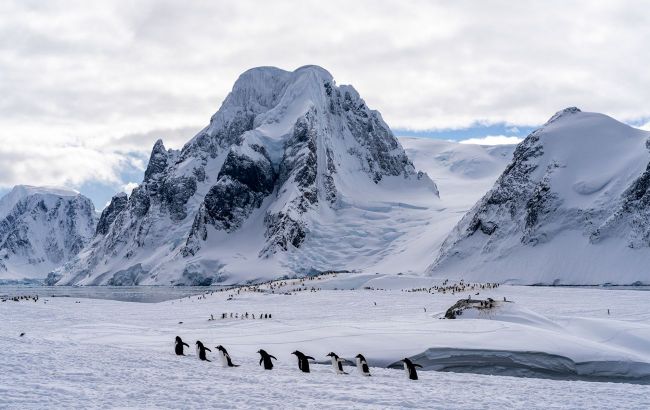Scientists reveal long-standing secret of mysterious Lake Enigma in Antarctica
 Scientists have found a unique ecosystem in a mysterious lake in Antarctica (Illustrative photo: Getty Images)
Scientists have found a unique ecosystem in a mysterious lake in Antarctica (Illustrative photo: Getty Images)
Lake Enigma is located in the Northern Victoria Land in eastern Antarctica, and for many years, scientists believed it was completely frozen – from top to bottom. However, recent research has shown that only the upper layer is ice, while beneath it lies a hidden and unique ecosystem.
A study published in the journal Communication Earth & Environment reveals what is known about this lake and the discoveries made by scientists.
Antarctica is the only continent on Earth that is entirely covered by ice. However, it also contains very beautiful and fascinating lakes. Most of them are frozen to the bottom, but recently, scientists have uncovered the secret of one of the most mysterious lakes in Antarctica – Lake Enigma.
A team of scientists from the Italian National Research Council discovered that beneath the thick ice of this lake lies a huge hidden volume of unfrozen water. And within this water is a unique ecosystem teeming with life.
Scanning of the lake revealed that its depth is approximately 12 meters, although these data are not very precise, and researchers believe that in other areas, it could be much greater.
The average air temperature is -14 degrees Celsius, with a minimum temperature around 40 degrees below zero. Due to this temperature difference, the water doesn't fully freeze, but the ice layer is about 11 meters thick.
The constant ice cover helps isolate the lake from the outside world, while the extreme temperatures promote the development of a unique ecosystem of organisms.
Some of these species are impossible to find anywhere else on Earth, and the local microbial system is completely different from other Antarctic lakes. This is due to the unique chemical and thermal properties of the water.
Scientists conducted a genetic analysis of samples taken from the lake and discovered a wide variety of microorganisms living in the water, including:
- Bacteroidota;
- Actinobacteriota;
- Pseudomonadota.
The results of the analysis revealed that the water is enriched with a large number of ultra-small bacteria from the Patescibacteria superphylum. These tiny bacteria have extremely small cells, contain highly reduced genomes, and perform very minimal cellular activity.
The microbiota of the lake occupies various trophic levels in a simple food chain, ranging from primary production to ectosymbiosis and predation. The tiny bacteria may play very minor roles in this process.
However, what impressed the scientists the most was the mere existence of this lake.
The thing is, Antarctica is the largest desert on Earth, as it receives very little rainfall or snowfall. Due to the lack of precipitation, as well as intense evaporation from the sun and high, gusty winds, the lake should be losing up to 200,000 cubic meters of water each year. However, the lake has not been depleted, and scientists believe it must have some hidden system of replenishment.
We also mentioned that scientists are warning about the potential disappearance of the Mediterranean Sea.

